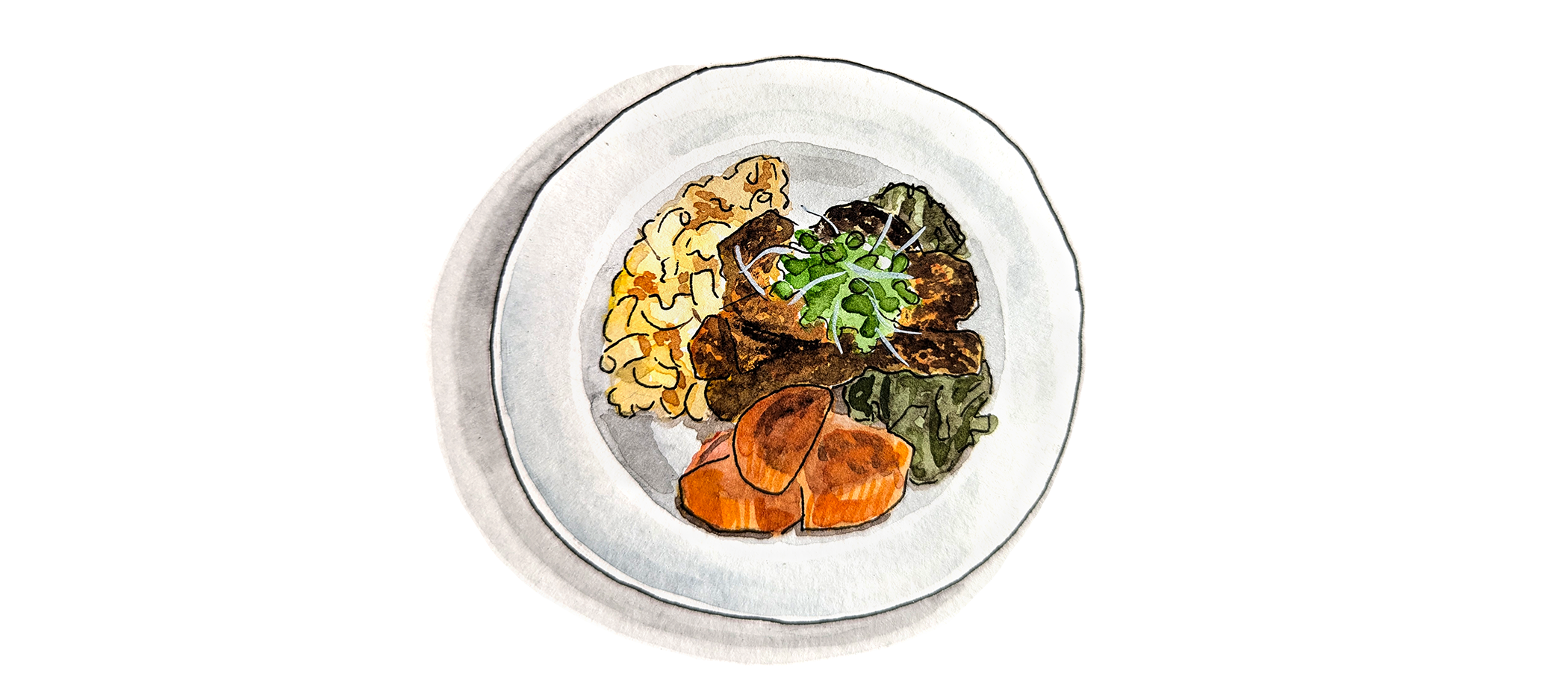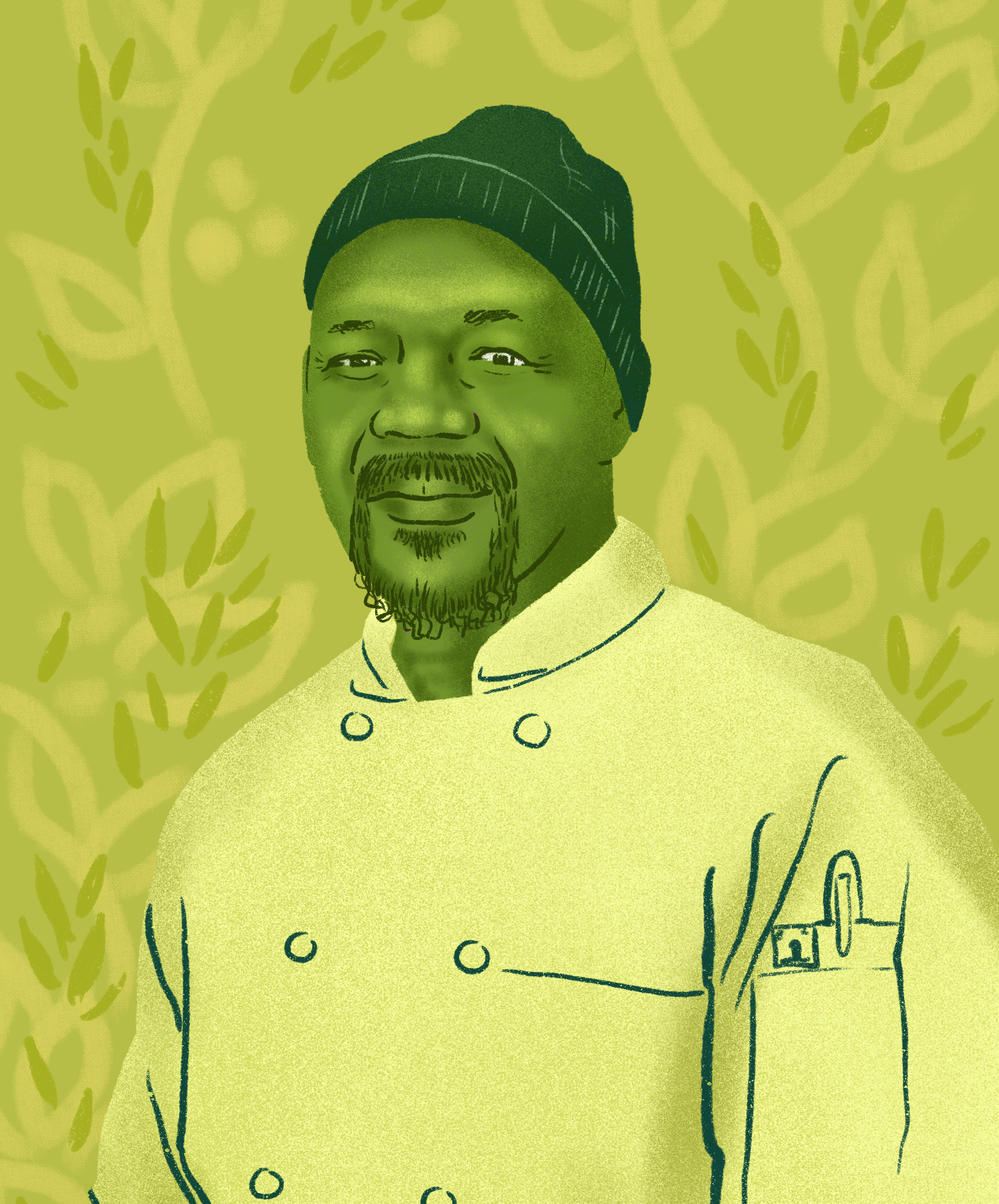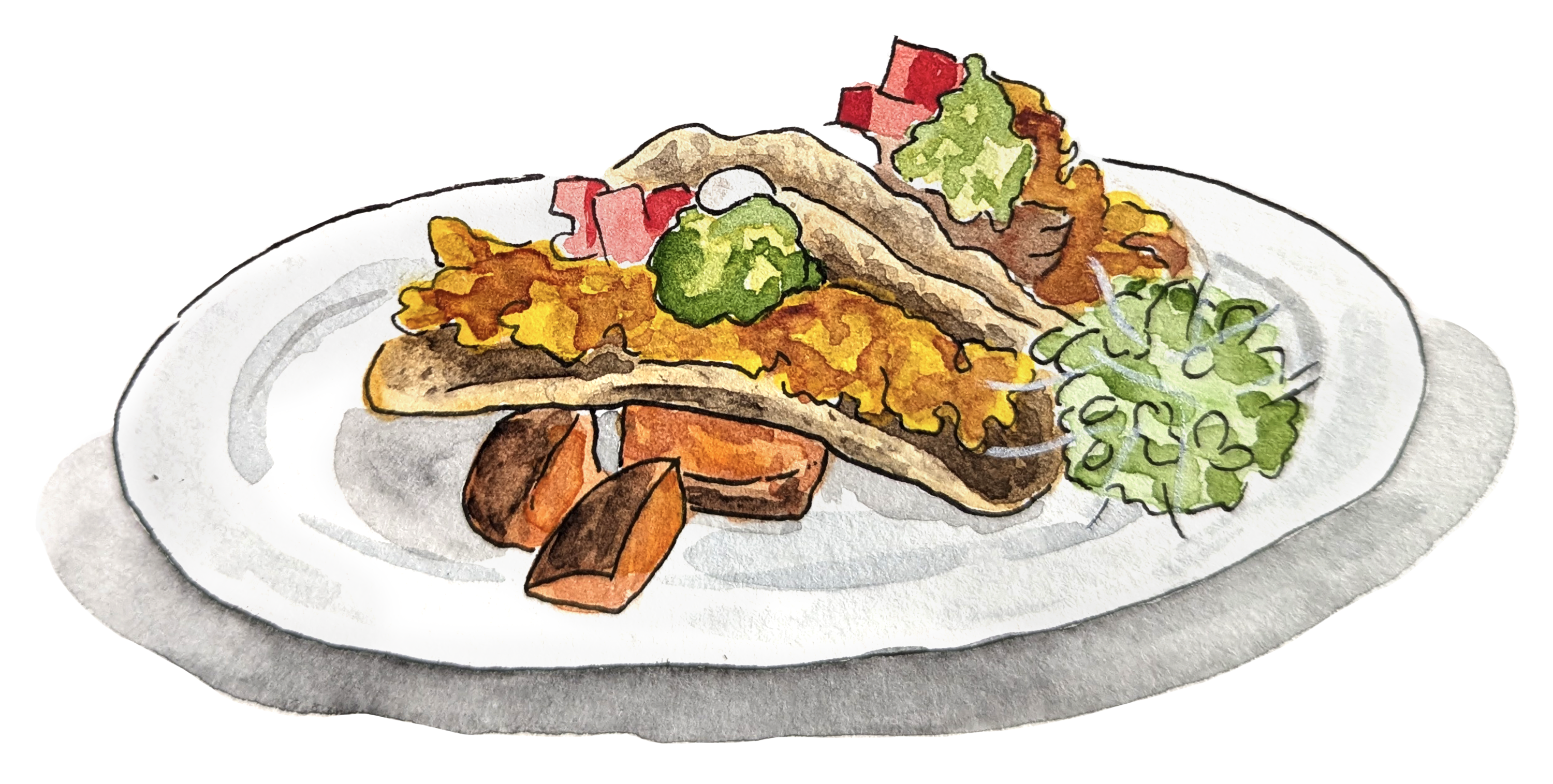My maternal great-aunt was among the millions of Black Southerners who journeyed to the Midwest in a series of 20th-century Great Migrations. In addition to running a rooming house from her three-bedroom apartment, she worked as a domestic for local White families and operated soul food eateries on Chicago’s west side.
Aunt Ceal and other migrants brought with them their music, forms of worship, speech patterns, and food culture. Smothered chicken, fried fish, collard greens, cornbread, and sweet potatoes became mainstays of the new northern diet. With some modifications, soul food is still popular a century later.


Tsadakeeyah (sah-DAH-kee-yah) Ben Emmanuel, fondly referred to as Chef T, is the founder of Majani Soulful Vegan Cuisine. He and his wife, Nasya run this 30-seat café on Chicago’s South Shore, with its tasteful touches of wood, chrome, and Africentric art. Majani is Swahili for “green,” a philosophy he has practiced all his life.
Chef T grew up in northern Wisconsin in the Seventh-day Adventist faith, with its emphasis on a plant-based diet rich in whole foods. In the 1980s he joined the Hebrew Israelite community and adopted a vegan diet. He dropped out of college, started working at restaurants, while “looking, watching, and learning from the sisters in Hebrew kitchens.”
The notion of soul food as unhealthy is one Black food historians and culinary experts work hard to debunk. Traditional soul food sources greens and beans of all kinds, corn, peppers, watermelon, and other foodstuff consumed by enslaved Southerners and their descendants. Meat was used sparingly, mostly for flavoring. Crops like peanuts, okra, watermelon, rice, and black-eyed peas migrated from West Africa along with the captives.
Yet stereotypes about Black food culture persist. In the Hulu dramedy Unprisoned, the teenage son of Kerry Washington’s character discovers soul food on a trip down South and promptly falls in love with it. His mother watches with increasing concern as he scarfs down cornbread, greens, and barbecue. “Would you like a side of hypertension with that?”
This stigma has discouraged some Black chefs, who prefer to call their fare “Southern-style.” Yet Chef T refuses to distance himself from soul food. It’s not just a name, but a mission. Although he welcomes patrons from every race and walk of life, his New Soul Food menu is designed to address health issues in the African American community. “We’re treading on sacred ground. I’m not going to shy away from that.”
Majani serves well-seasoned vegan versions of classic soul food dishes. “Our fan favorites are barbecue, which is barbecued cauliflower. Oyster mushrooms are nature’s fried chicken, and we serve it as an entrée, a taco, or a wrap.”

From Majani’s kitchen to yours, here’s an easy recipe for black-eyed pea fritters.
Ingredients
2 cups of soaked peas
½ carrot
½ zucchini
Chopped onion
Minced garlic
Salt and Old Bay seasoning to taste
Mix in a blender or food processor, shape into patties and fry.

In Praise of the Sweet Potato
In High on the Hog: A Culinary Journey from Africa to America (now adapted as a Netflix series), food historian Jessica B. Harris reminds us that most references to yams are misnomers.
Perhaps the South American tuber distantly related to the common potato reminded enslaved people of the African yam. That particular staple of West African cookery is much larger and sturdier, with a taste like a starchy potato. Not so with the sweet potato, whose texture is smoother and its flavor sweeter.
Though they come in yellow, speckled, and purple, the orange-skinned variety is a favorite in soul food recipes. Oven-roasted, casseroles, pones, and candied dishes are usually served alongside savory foods. People are finding new ways to enjoy them in quick breads, biscuits, muffins, stews, and even ice cream.
Most popular by far is sweet potato pie, a heartier version of a holiday favorite, pumpkin pie. This custard-based pastry is made from cooked sweet potatoes, baked into a mixture of sugar, milk, butter, eggs, cinnamon, and nutmeg. Vegan and light-calorie versions may use brown sugar or honey, plant-based milk and butter, and egg substitutes.
Loaded with fiber and rich in vitamins A and C, potassium, and manganese, these beauties aren’t just tasty, they’re good for you, too.
